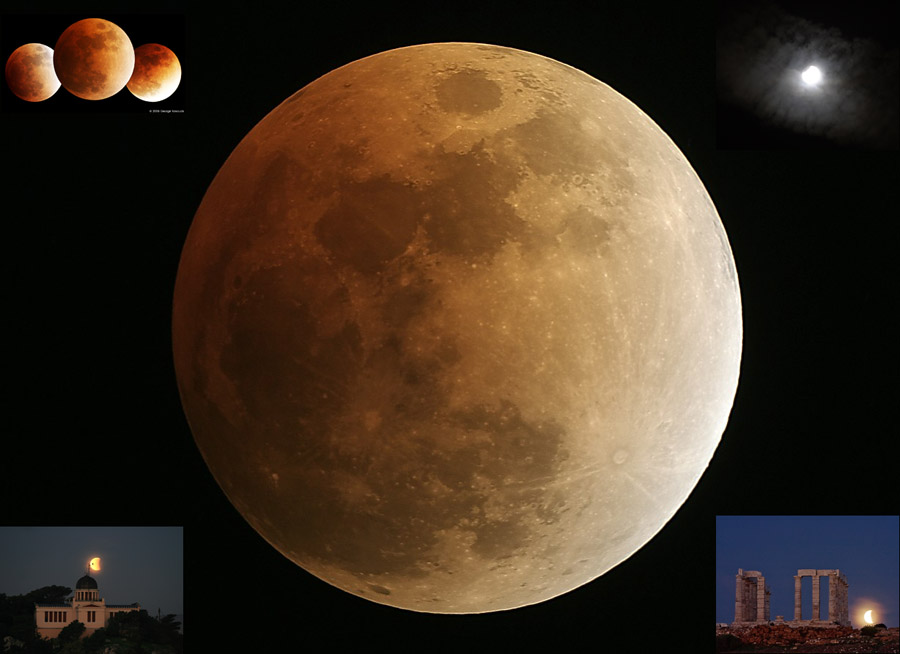September 7, 2017
Greek Fire
Originally published February 22, 2008

main image by Maximilian Teodorescu| (Romania) and clockwise from upper right Kostas Christodoulopoulos, John Doukoumopoulos, Elias Chasiotis, and George Tarsoudis (all from Greece)
The Feb 20th lunar eclipse was visible from more than half the Earth's surface, but four of the five people who submitted images to LPOD are from Greece! This must mean something - perhaps its the pervasive influence of the master Greek astro-landscape imager Anthony Ayiomamitis. The large image above, by Max, is most like the eclipse looked to me with 70 x 15 binoculars. The umbral part was not especially dark, but the penumbral edge was brilliant. Kostas' image, at upper right. shows how the eclipse flirted with clouds at various times and various places. George's series at upper left captures three different phases of the eclipse. And John 's photo of the Moon setting behind an ancient temple from a civilization that invented science is awesome - how many eclipses have been watched from that temple? Finally, Elias has made a symbolic conjunction of the Moon and the institution of Julius Schmidt, the man who observed the Moon most intensively in the second half of the 19th century.
Chuck Wood
Yesterday's LPOD: A Change in Texture
Tomorrow's LPOD: Hanging with the Moon
COMMENTS
1. Here are links of two of my photos of the eclipsed moon setting over the National Observatory of Athens in large size:
Elias Chasiotis
2. Thanks, Elias - these are beautiful - Schmidt would be proud!
Chuck
COMMENTS?
Register, Log in, and join in the comments.



